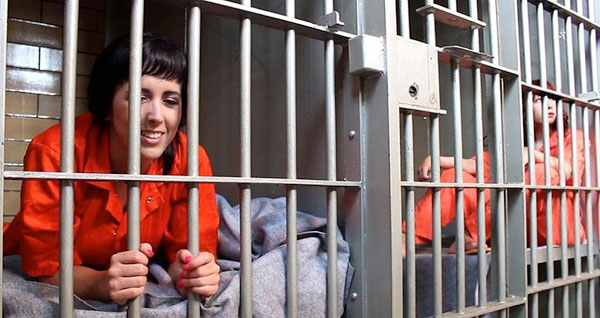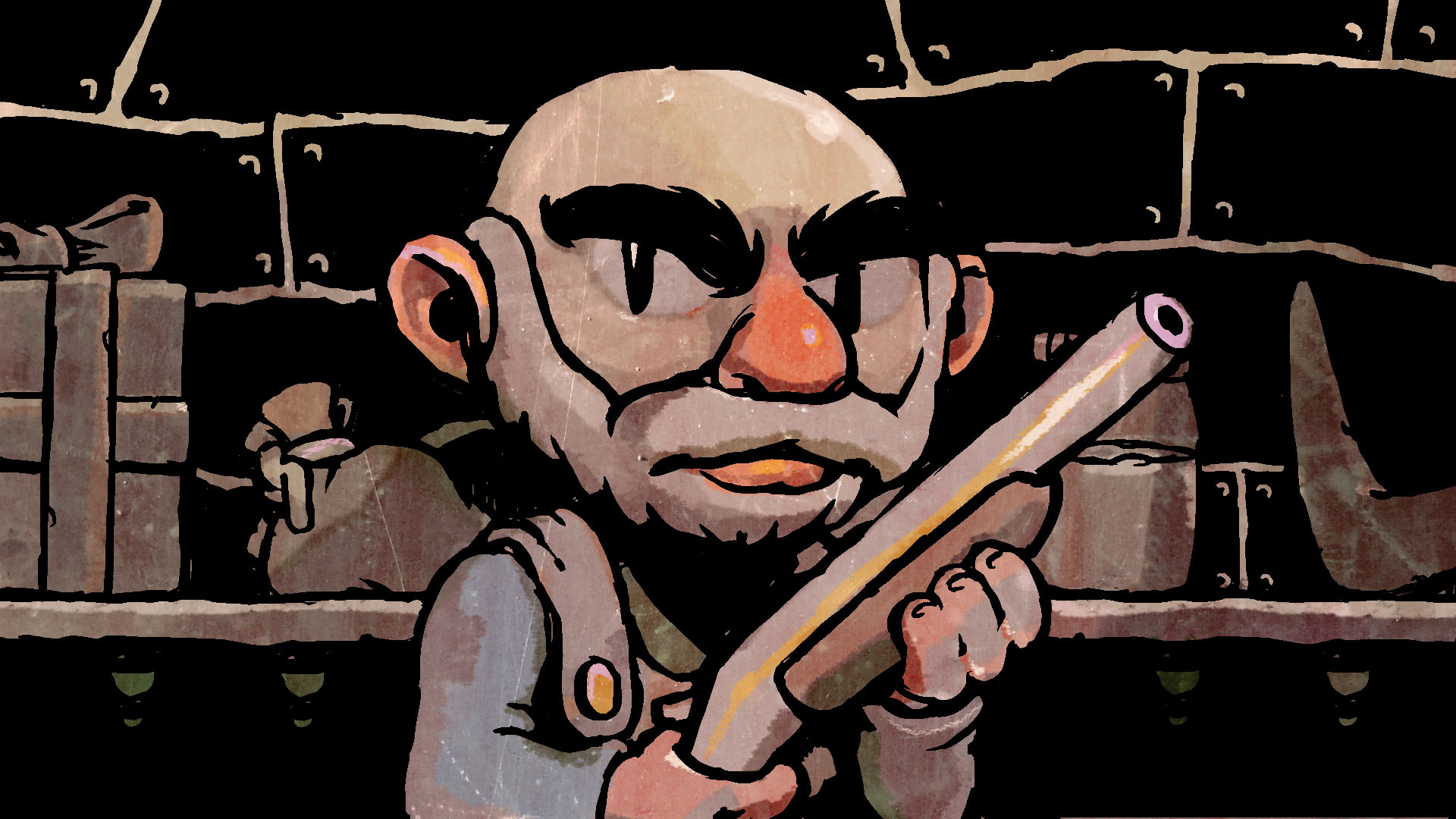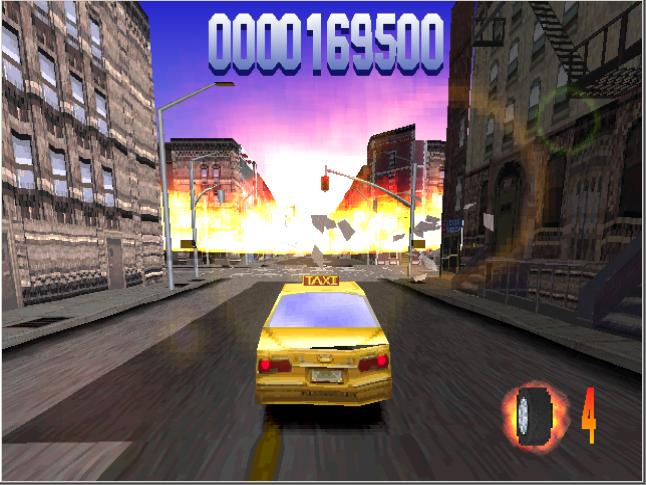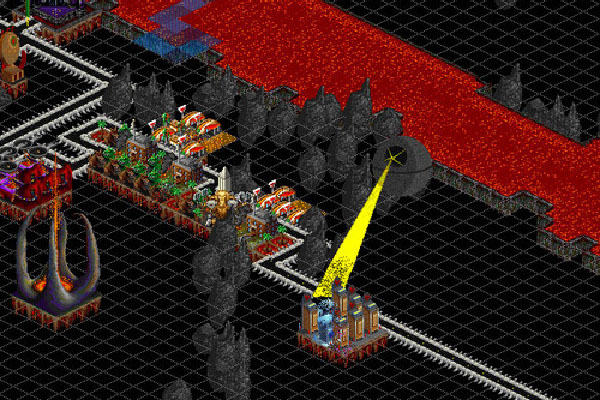Why I love games that call out my crimes
Be it theft, murder or real-life cheating.

In Why I Love, PC Gamer writers pick an aspect of PC gaming that they love and write about why it's brilliant. Today, Joe admires accountability in games.
As my taxi's wipers cleaned off the blood that was smeared across my windshield, I wondered how many people I'd actually saved by deactivating the bomb.
Moments earlier, I was hurtling down a busy Chinatown thoroughfare in pursuit of a stolen ambulance thought to be armed with explosives. I took out lamp posts in my wake, as well as traffic lights, roadside crates, trash cans, and, unfortunately, pedestrians. By ramming the wayward vehicle from behind, I was able to carry out a controlled blast which to my knowledge prevented the entire city from being wiped out. But it wasn't until I drove back the way I came that I was able to appreciate the destruction I'd caused.
It was around this time 20 years ago that I first played Die Hard Trilogy. Pretty much all of my mates were raving about the PlayStation version at the time, so I was delighted to receive Probe Entertainment's three game-boasting ode to the movie series on PC as an early birthday present in '97.
But I was a bit underwhelmed. The first game was glitchy, the second was a lacklustre on-rails shooter, and the third involved acting out the frantic bomb defusal routine noted above time and time and time again. One thing I found truly remarkable, though, was how many innocent people I could kill on the streets of NYC or within D.C.'s Dulles Airport with absolutely zero repercussions.
In videogames, filling the shoes of law breaking, trigger-happy and otherwise destructive 'heroes' is hardly a new concept, but I've always admired the games which tie proper consequence to such maverick behaviour. The Grand Theft Auto series, for example, sets the authorities on players for falling foul of the rules and while these pursuits can and often do escalate into chaotic shootouts, many games leverage less forgiving checks and balances against GTA's tiered wanted system.
My first experience of this was with SimCity 2000. After elevating myself to business tycoon status by way of Theme Park's 'HORZA' money cheat, I learned of the city-builder's similar cash-generating 'FUND' passcode. But I hadn't realised the windfall took the form of a loan—a 25 percent loan, at that—and that by abusing this perceived financial leg-up, I'd prompt a devastating earthquake on my wonderful town and its unwitting civilians.
This was the game's way of punishing cheaters which of course made me think twice about using it again. Even on the occasions where I either a) avoided the earthquake or b) survived it, the crippling debt I found myself thereafter in ultimately proved untenable.
Keep up to date with the most important stories and the best deals, as picked by the PC Gamer team.
At the time I was under the impression SimCity 2000 was simply a cruel game, and as such wound up finding myself in a similar situation just a couple of years later. In LucasArts' heaven-and-hell city-builder Afterlife, typing '$@!' in the main game screen landed you a surplus ten million pennies (I genuinely didn't need to Google this which likely speaks volumes of my character) to spend as you see fit.
But, again, abusing this trick was not recommended as it would invite an all-black Deathstar-like ship which rained piercing yellow lasers upon your constructions—a sure way to put you off overdoing the cheats.
Fast forward two decades and I'm still amazed by Skyrim's stealthy Bounty Collectors who have on more than one occasion chased me across the plains of Whiterun Hold for pickpocketing too many locals in Windhelm. Likewise, the way Guild Wars deals with cheating is fantastic: by putting offenders to death by the blade of executioner Dhuum—a process which sees cheaters banned from servers too.
And who could forget perhaps the fiercest justice bringers of all: Spelunky's shopkeepers. Those of you who've sought to swipe any of their wares while cave-diving will know the shotgun-wielding tellers do not take anything lying down, to the point where they track your every move en route to the game's ultimate Hell arena—and even adorn their walls with 'WANTED' posters starring your mugshot.
Be it in-game stealing, murdering, or all-round lawbreaking—or even real-life cheating—there's something to be said for accountability in games as it forces you to really consider your actions. If you do the crime, do the time, as the old adage goes, and if you're able to fight the law and win, well, more power to you.
But I bet you'll regret stumbling upon Spelunky's secret Black Market level after that last shoplifting spree. Rather you than me!




